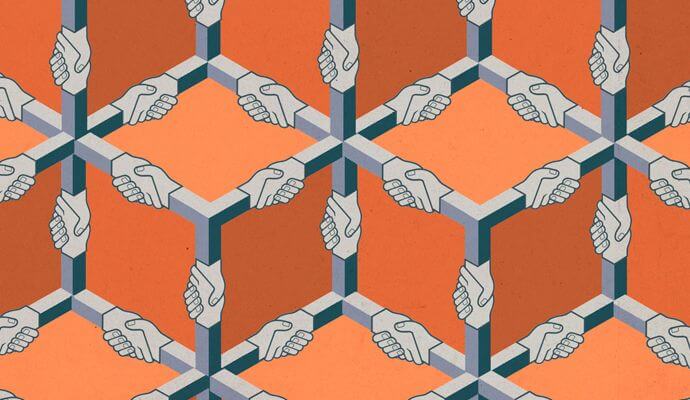During the last couple of years, governments throughout the world have been actively researching and looking for ways to implement blockchain technology into the public administration. Now, recent reports indicate that both the public and private sectors in Indonesia, are exploring the technology.
With this in mind, the government has taken what many refer to, as a leadership role, meant to further explore blockchain technology. This has been done by having the Financial Services Authority create a team, in charge with studying all methods in which blockchain technology can help improve Indonesia’s financial services market.

Additionally, reports also indicate that policymakers of the Indonesian government believe that blockchain technology can help reduce the graft associated with the region’s public programs. This is an especially relevant area, as the tech can improve accountability. As agriculture is essential in the country, the government hopes that blockchain can also be used to estimate harvest production, and to verify the accuracy of information received by fund recipients.
In a recent press statement, the Minister for Finance, Sri Mulyani Indrawat, mentioned that: ‘Our staff is investigating the possible uses of blockchain technology for subsidy disbursement and microloan programs, while also identifying the groups that are in need of government-funded benefits.’
There have also been several discussions related to how blockchain technology can be used to improve election result verification. In fact, an app will soon be introduced on the Sumatra Island, which will allow voters to access direct polling of the local policy issues being debated in the region.
Last but not least, the government is also considering the implementation of blockchain technology for better data management. The country has often dealt with a lack of digitalization at an administrative level, thus making it hard for people to prove that they have paid their taxes. A better data and identity management system would make it easier for the government to keep track of the 250 million people living in the country.
However, before these projects can be implemented, the government will need to provide clearer a clearer regulatory framework. A tax office executive in Indonesia, Iwan Djuniardi, recently mentioned that: “It takes time to process a management change before we adopt a new technology. Even cloud technology is still being debated, let alone blockchain.”
Based on everything that has been outlined so far, what are your thoughts on the latest blockchain developments in Indonesia? Let us know your thoughts in the comment section below.
